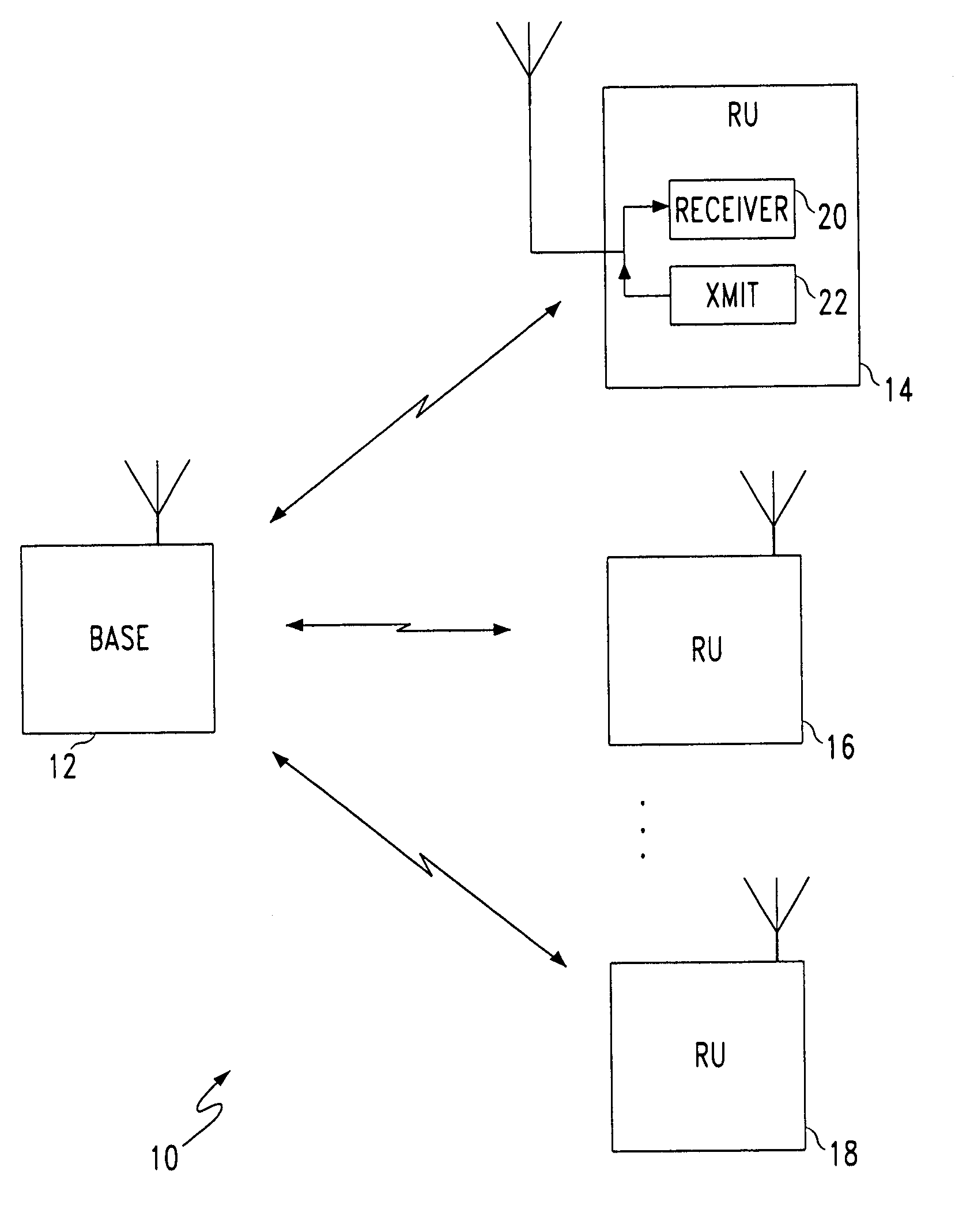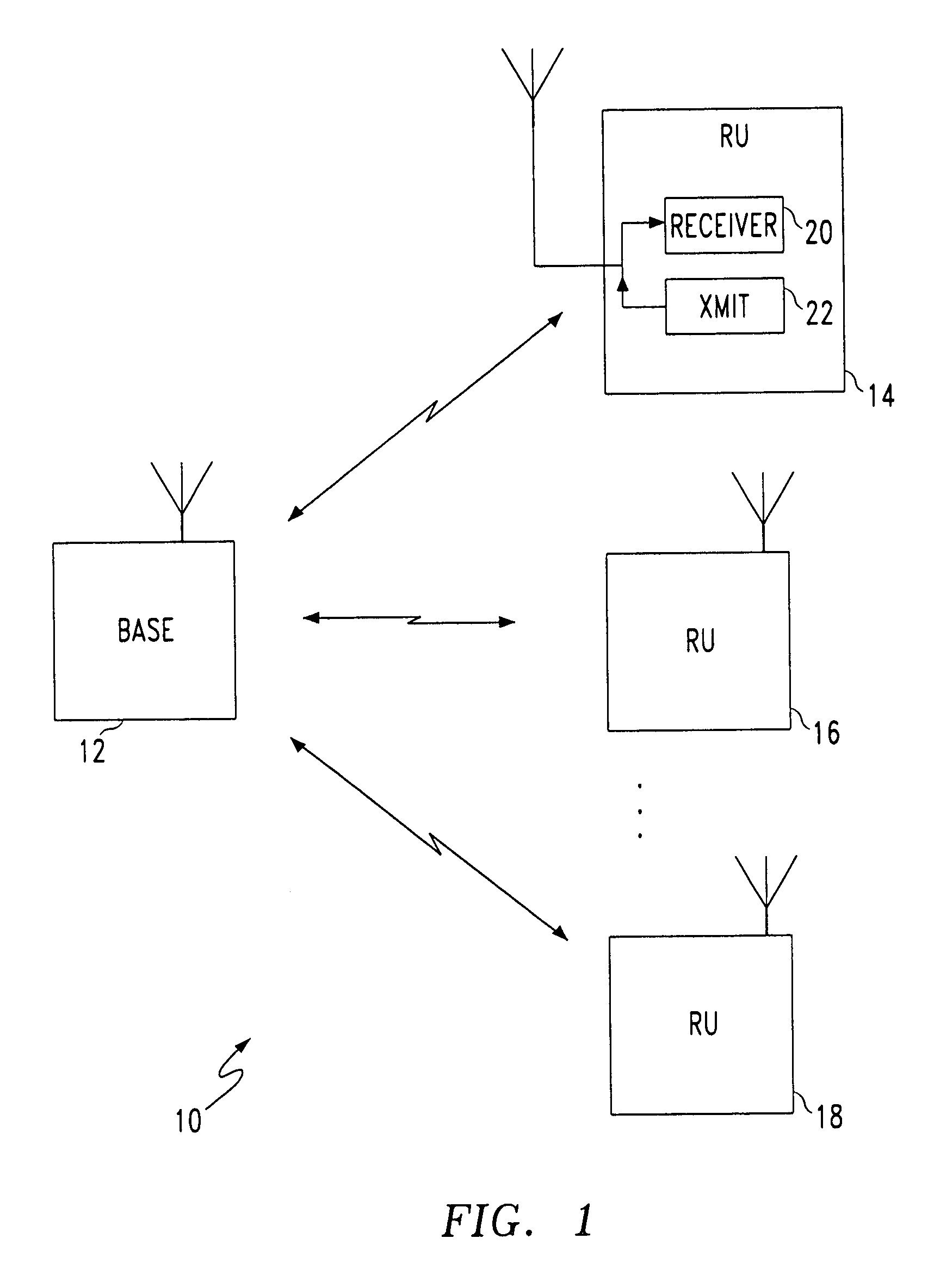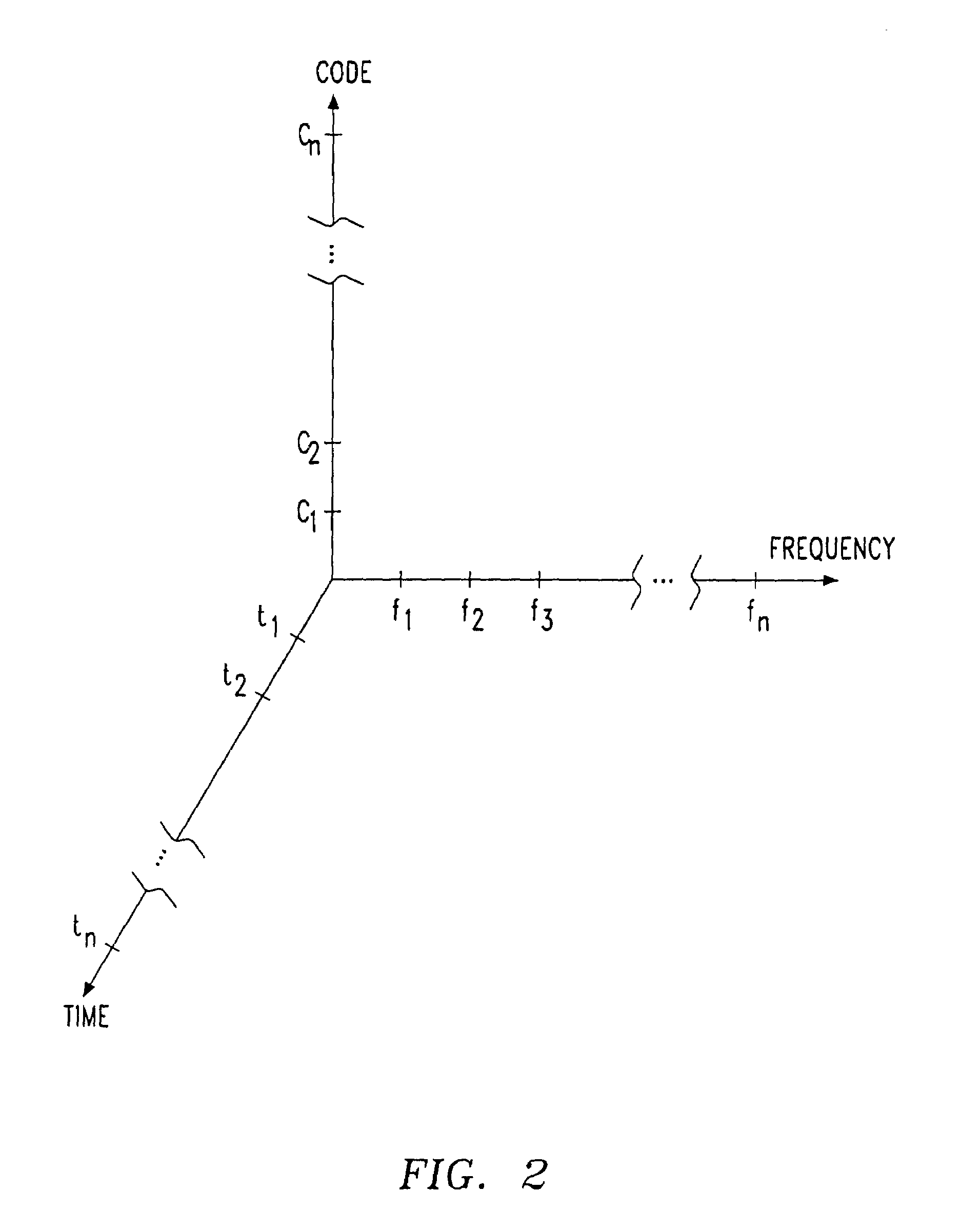Collision-free multiple access reservation scheme for multi-tone modulation links
a multi-tone modulation link and reservation scheme technology, applied in the field of communication systems, can solve the problems of high frequency of packet collisions under heavy loads, waste of communication resources, and limitation of their achievable throughpu
- Summary
- Abstract
- Description
- Claims
- Application Information
AI Technical Summary
Problems solved by technology
Method used
Image
Examples
Embodiment Construction
[0036]FIG. 1 is a block diagram schematic illustrating the present invention communication system for receiving uplink data messages without collisions. The system 10 comprises a base station 12 having a port to transmit and receive messages. The base station 12 establishes an arbitration state to request unique uplink request signals and to monitor unique uplink request signals.
[0037]A first remote unit 14 has a port in communication with the base station 12 to transmit and receive messages. The first remote unit 14 transmits a first unique uplink request signal to the base station in response to receiving the request for unique uplink request signals. The remote unit 14 sends a signal which is typically a single bit of information using on / off decoding. A second RU 16 has a port in communication with the base station 12 to transmit and receive messages. The second RU 16 transmits a second unique uplink request signal to the base station 12 in response to receiving the request for ...
PUM
 Login to View More
Login to View More Abstract
Description
Claims
Application Information
 Login to View More
Login to View More - R&D
- Intellectual Property
- Life Sciences
- Materials
- Tech Scout
- Unparalleled Data Quality
- Higher Quality Content
- 60% Fewer Hallucinations
Browse by: Latest US Patents, China's latest patents, Technical Efficacy Thesaurus, Application Domain, Technology Topic, Popular Technical Reports.
© 2025 PatSnap. All rights reserved.Legal|Privacy policy|Modern Slavery Act Transparency Statement|Sitemap|About US| Contact US: help@patsnap.com



